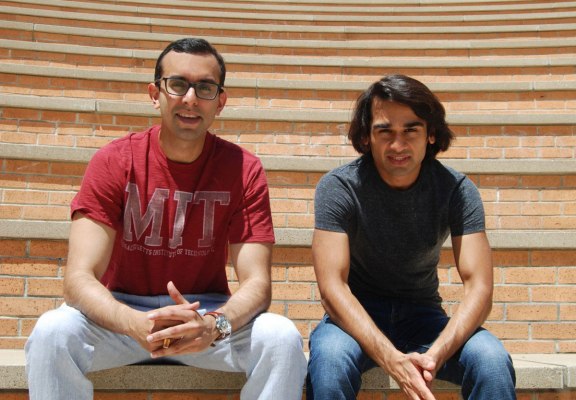Romulus Capital has raised its third—and largest—fund to back early-stage startups, many sourced in labs at MIT, the alma mater of the firm’s founding General Partner, Krishna K. Gupta.
The firm closed its newest fund, Romulus Capital III LP, at $75 million, and intends to lead seed or series A deals in 15 to 20 companies from it.
Krishna K. Gupta launched Romulus Capital in Boston in 2008 with a modest, $850,000 fund, which he raised while they still an undergrad at MIT. Later, Gupta and Chheda, who joined Romulus in 2012, raised a $50 million fund, which combined with some special purpose vehicles, brought Romulus’ total assets under management now to $150 million.
Originally, Romulus Capital wanted to support great technical entrepreneurs Gupta met on campus who would likely, after graduation, abandon their very early-stage startups for day jobs in finance or consulting, Gupta said.
The investors’ youth was seen as a sign of inexperience to some potential limited partners in their fund’s earlier days, Gupta and Chheda said. But they no longer view it as a liability.
As Indian-Americans in their late-20s today, the investors feel they are “more relatable” to many founders than top-ranking partners within large Silicon Valley firms, which haven’t had a good track record on diversity within or beyond their ranks.
That said, Romulus companies have gone on to raise follow-on funding from some of the biggest funds and corporations around, including NEA, General Catalyst, Intel Capital and Salesforce.
The young firm has seen two exits (by way of mergers and acquisitions) in its portfolio to-date, with the sales of Crocodoc to Box, and Gyft to FirstData Corp. in 2014.
It has also seen one company deadpool, however– Beacon, the all-you-can-fly travel startup, which closed shop in spring this year after raising a tranched Series A round from Romulus and others.
Most recently, Romulus led a $5.5 million investment in EquipmentShare, a peer-to-peer marketplace used by contractors to rent heavy equipment. EquipmentShare was part of Y Combinator, but its founders are not MIT alumni.
The Romulus portfolio also includes: ClassPass, which lets customers book and take classes at any listed gym or fitness studio for a flat monthly rate; Placester which provides site creation and other tools to help real estate agents do business online; E la Carte, a maker of tablets for restaurant tables that allow patrons to pay without waiting on a check; and Ginger.io an app that tracks a user’s mental health then alerts and helps them when they need counseling.
Shortly after he began investing in seed deals, Gupta said, he realized, “to scale a firm you cannot be attached to a single school.”
While Romulus has continued to back companies at MIT, especially from Prof. Sandy Pentland’s MIT Media Lab, they now scout deals on campuses across the country, and through incubators, accelerators, and their expanding professional networks.
Beyond MIT, Romulus developed some unifying themes around which it invests and will continue to invest. “We don’t like crowded spaces,” Gupta said. “We do like business-to-business, vertical plays.”
Chheda elaborated, “We like companies that bring a new technology or new business model to large industries that haven’t been transformed by it yet.”
Leveraging its new limited partners, Romulus Capital will look to fund tech startups with a global strategy, and select deals beyond the U.S., specifically in Western Europe, China, and the Middle East now. Though the fund remains focused on startups in the U.S.
Romulus Capital III LP attracted the firm’s existing limited partners from the U.S. and Europe, along with a mix of business conglomerates and royal family funds based in Saudi Arabia, Oman, Kuwait, China and Hong Kong
Besides the expanded, international network, Gupta believes that investing from a $75 million fund today really won’t be that different from investing from a $50 million fund three years ago. “Round sizes have come up. But we’re sticking to a strategy that’s already working for us,” he said.
Corrections & clarifications: Gupta, Romulus Capital’s founder, is an MIT graduate. Chheda went to Yale and joined him at Romulus Capital almost four years after Gupta began investing.
